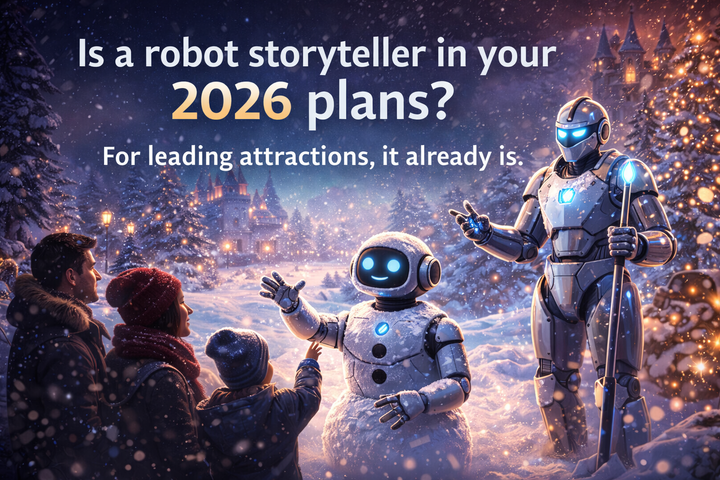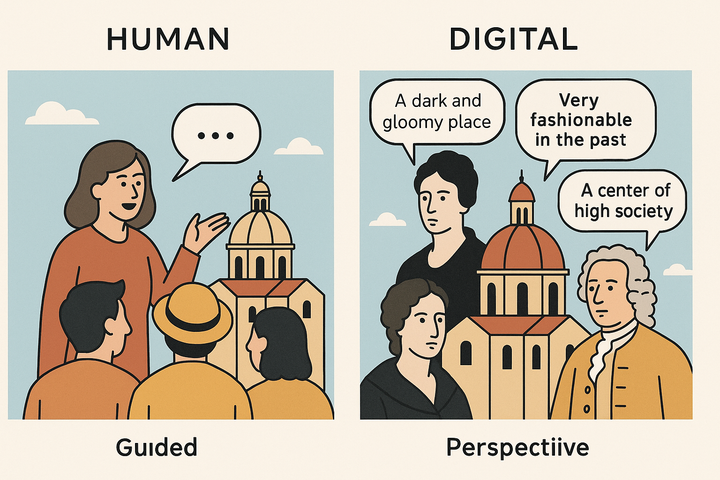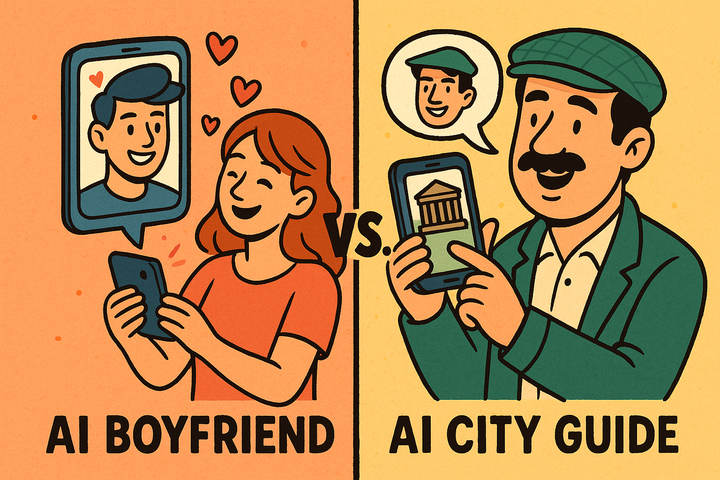Is AI ready to create, choose, and tell stories better than a human tour guide?
Storytelling isn’t just about content—it’s about connection. A human guide reads the room, skips the meat story for the vegetarians, senses when attention is drifting, and shifts tone accordingly. Can AI do the same?
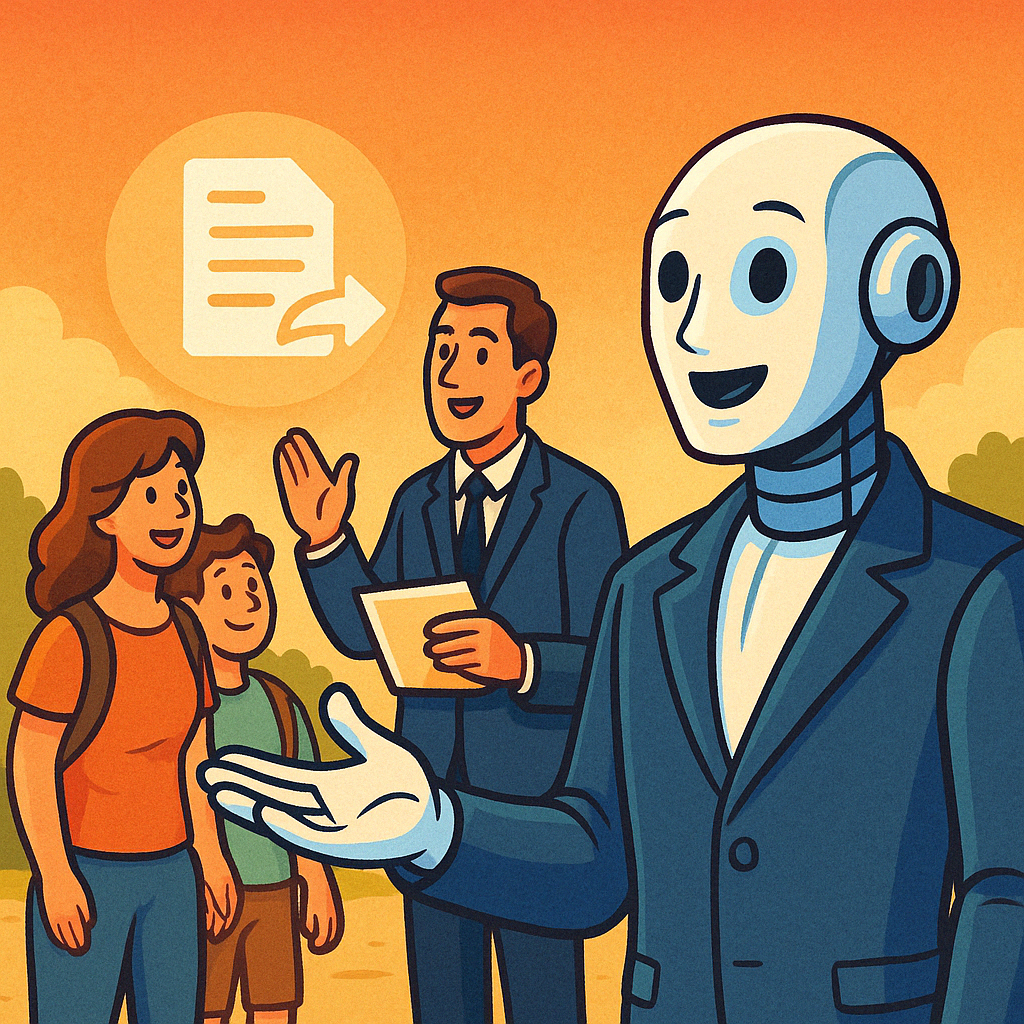
Let’s break that down. First, AI needs to create compelling stories—structured, engaging, and relevant. Then it must choose the right story for the right person at the right time. Finally, it has to tell that story in a way that connects—whether through voice, avatar, or even a humanoid robot
Create
As an AI developer, I love the level of detail in this diagram showing how an AI might write a story:
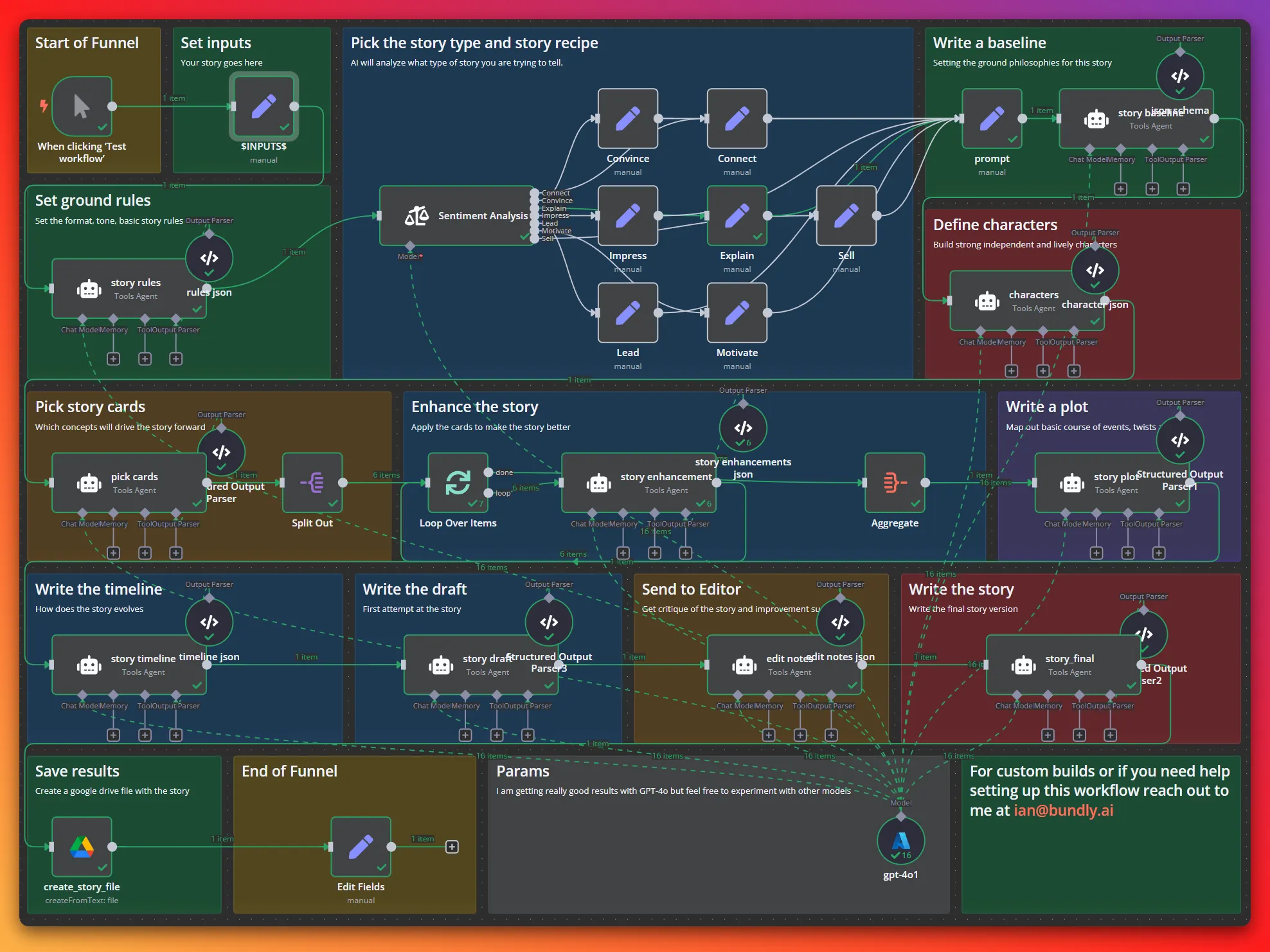
In my vision for Autoura, I’ve been focused on humans creating the story and AI telling it. But when you break it down like this, it’s clear that AI story generation can be deconstructed into achievable steps—steps we can build with current-generation AI tools.
One thing the flow doesn’t quite capture is the personalisation element, which is critical in tourism: how do we adjust the story to fit this guest, in this moment.
Still, it’s a strong foundation for thinking about how AI can craft meaningful narratives.
Choose
Once a story exists, the next challenge is deciding when—and for whom—it should be told:
- Preferences - don't tell a story about meat to a vegetarian
- Context - don't tell a 10 minute story when you are 5 minutes away from an important location where you must tell a different story
- Avoiding the obvious – I live in Southampton (UK), and the only stories AI wants to tell are about the Titanic and Jane Austen. Great—but what about something different, like the invention of fish fingers?
- History – we need to track what stories have already been told, especially if a guest is moving across multiple storytellers over several days (human or AI)
Tell
Now we need to tell the story—and how it’s delivered can make all the difference. Whether it’s spoken by an AI assistant, a human guide, or even a humanoid robot, the delivery shapes how the story lands, how it’s felt, and how it’s remembered.
If the AI is directing a human tour guide how to tell a story, most of these factors are already handled, but if the AI is the storyteller:
- Dynamic - for a discussion of what’s possible, watch this short TikTok. It shows how personalisation can happen at the moment of delivery, not just in advance—adjusting the story as it's being told, in real time
@dmelhoff Mind-blowing theory on the future of storytelling with AI 🤯 Scientist & cohost of the All-In podcast, David Friedberg, talks about what he sees as the two main directions of media and content going forward. As a writer, it’s exciting and overwhelming. What do you think? #storytelling #writing #ai #generativeai #allinpodcast
♬ original sound - The Grim Reader
- Interaction – this is what sets AI tour guides apart from audio tours. You don’t talk to your TV—and your TV doesn’t talk back. But an AI storyteller can respond, adjust, even banter. It’s a whole new kind of experience
- Observation – a great storyteller watches the room. Are people leaning in, or zoning out? That feedback loop should shape the story in real time—and inform future tellings. In 2025, AI in a phone app still struggles here. But as AI glasses, wearables, and humanoid robots become more common, observation becomes easier to solve
- Character – unlike human guides, AI can become anyone. Want Aristotle to explain ancient philosophy? Miss Moneypenny to lead a spy-themed tour? No problem. Human guides can’t shapeshift—AI storytellers can
Conclusion
Yes—AI is ready. And this matters for tourism, because tourism has always been about storytelling.
Beyond tourism there’s also a societal shift we need to consider:
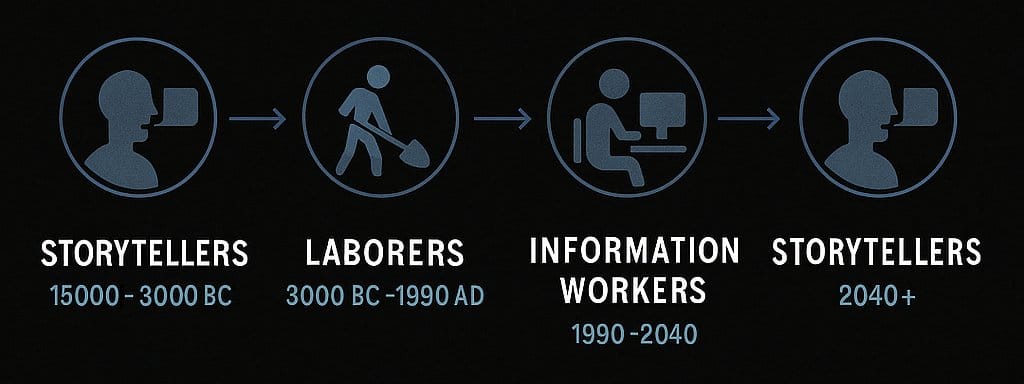
Image: PJ Ace
If every human becomes a storyteller, and every device—phone, speaker, or robot—can tell stories too, what happens to the role of the dedicated storyteller? In a world where narrative is ambient and always available, the idea of hiring someone human for a few hours to tell stories might feel increasingly niche.
As storytelling becomes ever more accessible—augmented by AI, embedded in devices, tailored in real time—we may need to rethink not just who tells the stories, but what it means to be a storyteller.
Storytelling Wizard available from https://bundly.gumroad.com/l/storytelling-wizard [Not an affiliate link]. Flow image reproduced with permission.
Want to read more like this?
Low volume. Short length. Focused content.
We know you're busy — only the good stuff, no noise.

